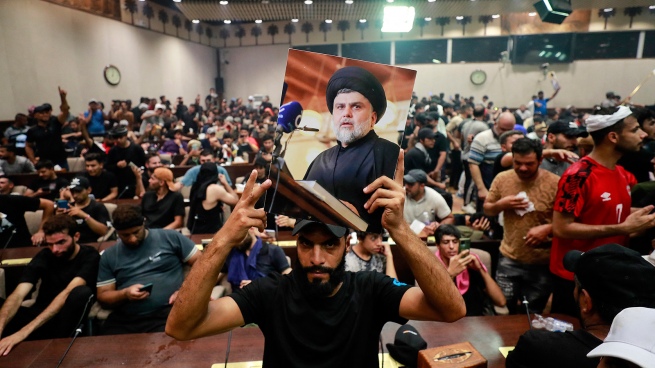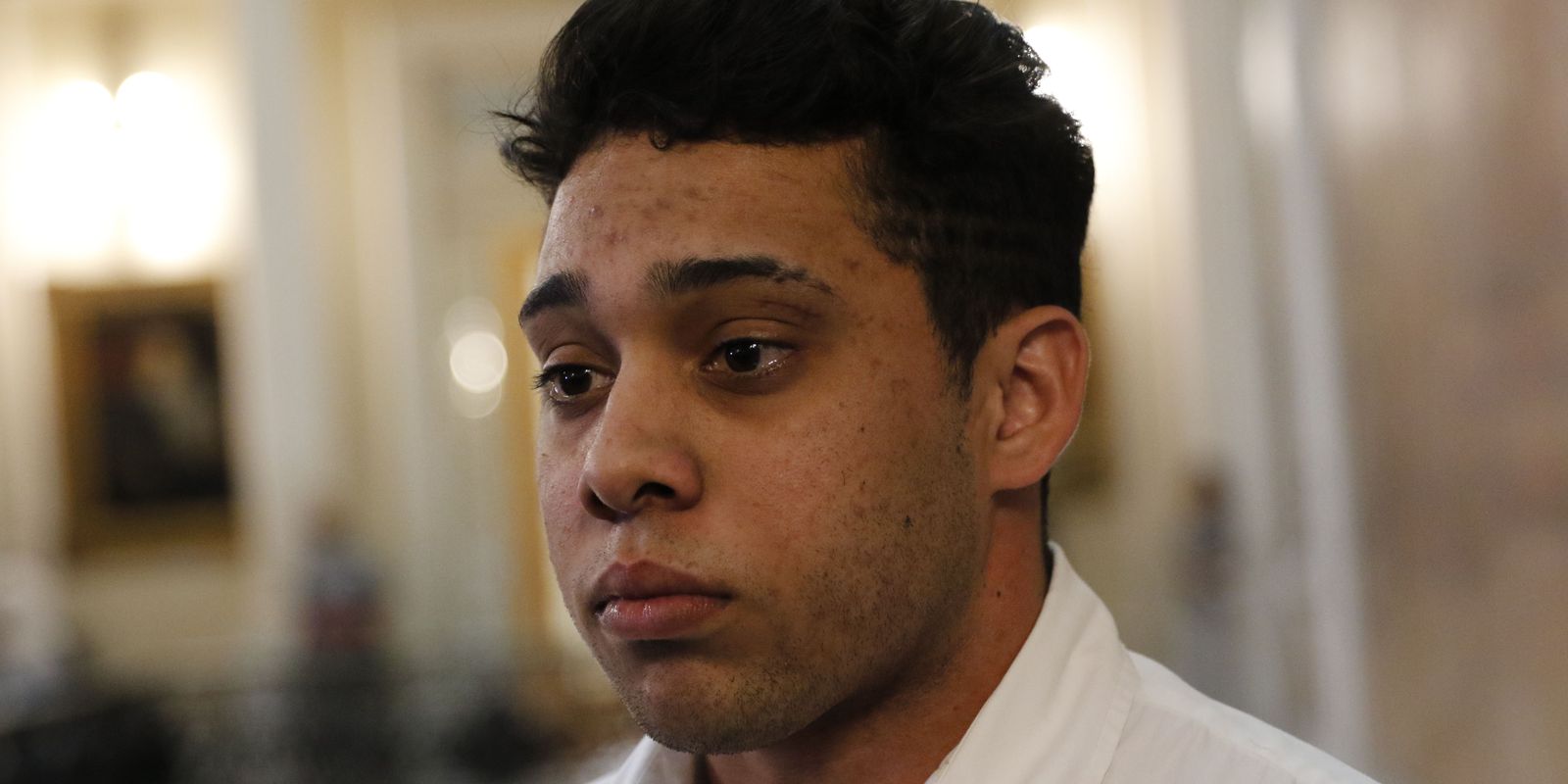Shiite leader Muqtada al-Sadr, who heads the Sayyrun nationalist coalition, whose supporters have occupied the lower house of Iraq’s parliament in recent days, called on Wednesday to dissolve the legislature and call for early elections, in full swing of the political crisis that shakes the country since the elections last October.
“The old faces will not exist through an early democratic electoral process after the dissolution of parliament”expressed al Sadr, during a speech on local television.
“The Iraqi people are tired of the entire ruling class” so “the protesters must stay and continue with their sit-in (demonstration) until they achieve their demands”, he added, according to the Europa Press news agency.
The conflict “is not between people,” the Shiite cleric emphasized, adding that “malicious demands” obstruct “the formation of a majority government” and stressed that they will not accept any “bloodshed,” the local daily Al Iraqiya reported. .
Last Saturday, Al Sadr supporters rejecting Mohamed Chia al Sudani’s candidacy for the post of prime minister stormed the Iraqi parliament, a fact that forced the suspension of sessions until further notice. After that, the protests continued.
Tensions rose after Sadr and his supporters rejected Sudani, the prime ministerial candidate put forward by his opponents.the influential pro-Iranian Shiite factions that form the Coordination Framework, the AFP news agency reported.
Al Sadr, a cleric who once led a militia against Iraqi government forces and the US military, is using the street protests to signal that his views should be taken into account in the formation of the new government, analysts say.
The Coordination Framework brings together the Hashd Al Shaabi, former paramilitaries who are part of the regular forces, and the formation of former Prime Minister Nuri Al Maliki, a historical enemy of the Shiite leader Al Sadr.
Yesterday, leaders of the Coordination Framework multiplied calls for dialogue to resolve the crisis.
On this, Al Sadr made it clear today that “there is no benefit in dialogue with them.”
“Do not give in to their rumors that I do not want dialogue, but dialogue with them has been tried and has only brought ruin,” he stressed, adding that “he does not seek authority.”but calls for reforms.
He also denounced that “some” want to kill him, after audios of his greatest rival, former Prime Minister Nuri al Maliki, were allegedly leaked, where insults against the cleric are heard, in which he calls him “assassin” and “coward” during a meeting, the NINA news agency replied.
The Sayirún coalition led by Al Sadr was the most voted in last October’s elections and won 73 of the 329 seats.
However, in June, 73 deputies from the current of the Shiite leader presented their resignation, to press for the formation of a government, stalled since the 2021 legislative elections.
Iraq is a multi-faith country in which the same figures have dominated public life since 2003, when President Saddam Hussein fell.
The political stalemate is complete ten months after the legislative elections in October 2021. Since then, the negotiations to form a government and appoint a prime minister have not advanced.









